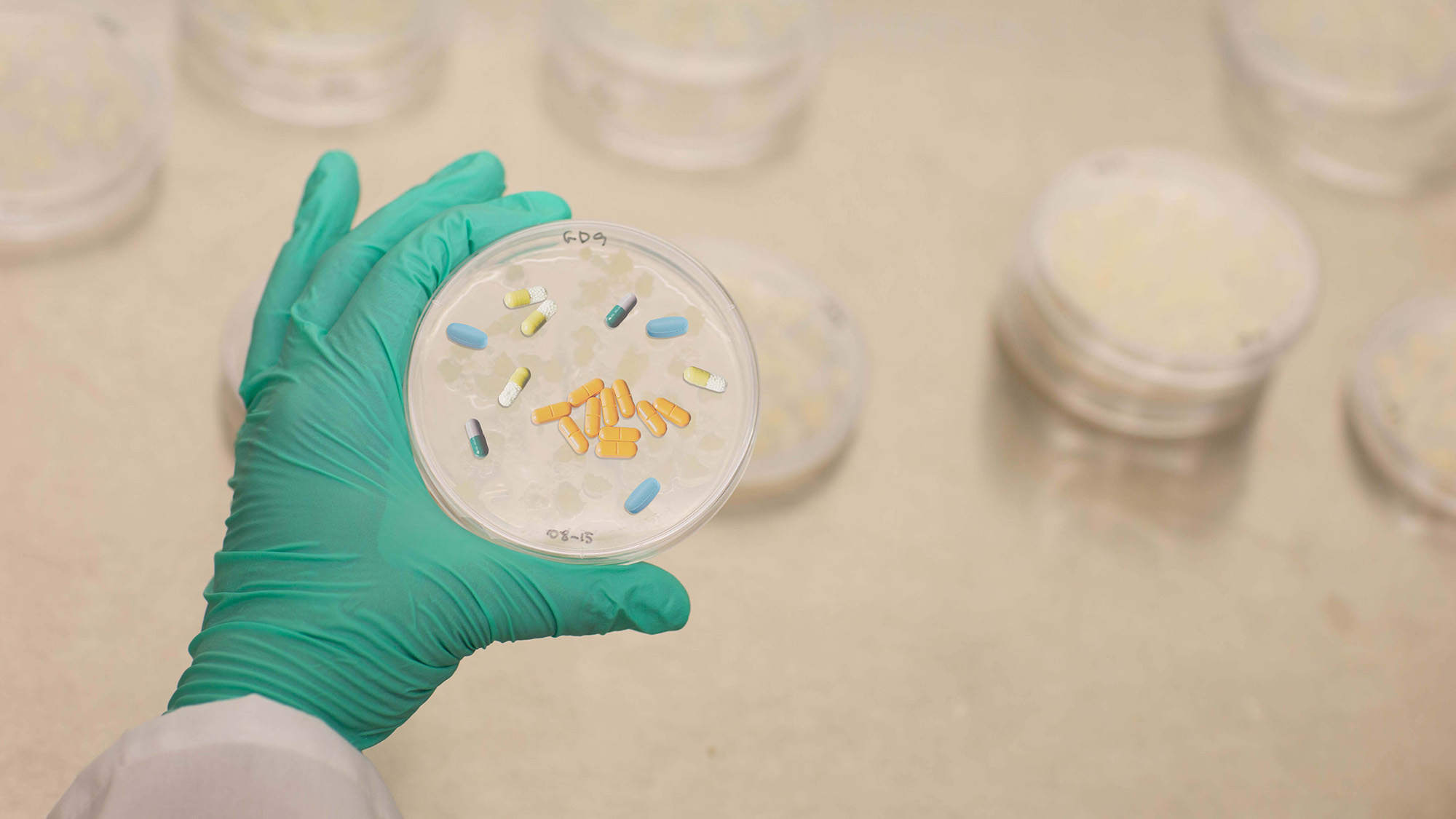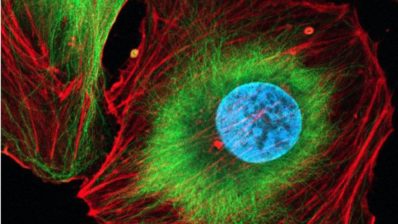In 2021 the Center for Genomic Regulation (CRG) and its spin-off Pulmobiotics worked together to develop the first ‘living pill’. A modified, non-infectious version of the bacterium Mycoplasma pneumonia (one of the smallest bacteria in existence, and naturally adapted to lung tissue) that is capable of producing, once it reaches the lung, molecules to treat various pathologies. Since then, the team of Luis Serrano, director of the CRG, has been working to find new applications for this ‘living pill’.
Treating respiratory infections
In a recent study, Serrano’s team has modified M. pneumonia so that in addition to being harmless, it produces molecules capable of killing and inhibiting the growth of Pseudomonas aeruginosa. This bacterium, which inhabits the endotracheal tubes of intubated patients, causes ventilator-associated pneumonia in one in four patients and is highly resistant to antibiotics.
The use of this modified bacterium, together with low doses of antibiotics – which have no effect on their own- has shown that the ‘living pill’ is non-toxic to mice lungs, that it reduces bacterial infection (doubling the survival rate in mice) and that it is also safe: in 4 days the organism eliminates the modified bacteria on its own.
“The treatment opens holes in the cell walls of P. aeruginosa and creates fundamental entry points for the antibiotics to invade them and eliminate the infection at its source”
Maria Lluch, Pulmobiotics
Although this treatment must be further studied before it can enter a clinical trial, the researchers expect it will be administered in the form of a nebulizer. And in any case, the good results so far ratify the use of the ‘living pill’ as a temporary factory for localized production.
This has also been demonstrated by the team generation of another ‘living pill’ capable of reducing the inflammation caused by Pseudomonas aeruginosa infection. Using computer software, they have designed an improved version of the cytokine IL-10, an anti-inflammatory molecule released during the immune response, and they have introduced it into the ‘living pill’. Its application in mice has proven that «the improved IL-10 delivered directly to the lung is able to reduce inflammation more efficiently», says Ariadna Montero-Blay, first author of this study.
1.9M euros for lung cancer
Pulmobiotics is the spin-off that Maria Lluch and Luis Serrano created in 2020, whose aim is to develop therapeutic applications for pulmonary affectations. And it has recently received a grant of 1.9 million euros from the European Innovation Council’s Transition Challenge call. This money will be used to design a ‘living pill’ to help in the treatment of non-myocritical lung carcinomas, the most common type of lung cancer, which tends to develop resistance to the usual treatment (a type of immunotherapy) as well as toxicity. The scientific team proposes to boost that treatment with a ‘living pill’ reprogrammed to activate the immune system in and around the tumor. It is hoped that this will help trigger a localized immune response in the lung that avoids damaging the healthy tissues and the usual side effects.
Mazzolini, R., Rodríguez-Arce, I., Fernández-Barat, L. et al. 2023. Engineered live bacteria suppress Pseudomonas aeruginosa infection in mouse lung and dissolve endotracheal-tube biofilms. Nat Biotechnol. doi.org/10.1038/s41587-022-01584-9.
Montero‐Blay, A. et al. 2023. Bacterial expression of a designed single‐chain il ‐10 prevents severe lung inflammation. Molecular Systems Biology, 19(1). doi.org/10.15252/msb.202211037.







